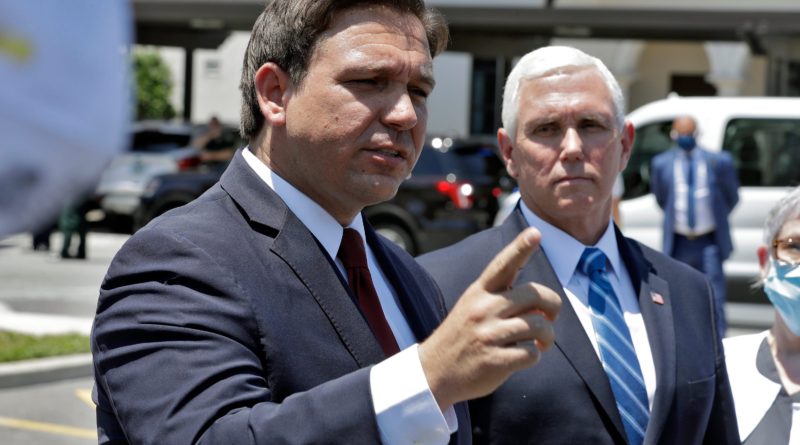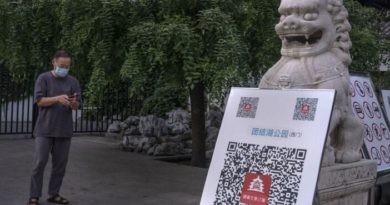Florida Department of Health denies broad COVID-19 data access to medical school researchers
After months of negotiation, the Department of Health has told researchers at Florida’s medical schools trying to access the state’s raw COVID-19 data: You can’t have it as a group.
Instead, research teams at medical schools must individually apply for access.
The data, collected by hospitals, state and private labs as well as clinics across the Sunshine State on COVID-19 cases and patients, are essential in informing the response to the pandemic and provide researchers the ability to independently verify official numbers. Researchers and practitioners want the data to assist the state with the fight against the deadly novel coronavirus, providing life-saving insights and analysis to policymakers and doctors on the frontlines.
But the DOH refused broad access to the data Monday, instead sending the Council of Florida Medical School Deans a template that only allows individual research teams to apply for access to the data.
The move sets back research efforts to better understand COVID-19 weeks, if not months as the state is gripped by record rates of new infections four months into the deadly pandemic.
“It’s been an unfortunate waste of time in the midst of a crisis,” said Jay Wolfson, senior associate dean for health policy and practice at the University of South Florida’s Morsani College of Medicine, who has been part of the negotiations with DOH.
The council has been negotiating a data use agreement with the DOH since May, with the aim of putting the shared goals of researchers and their technical capabilities in the service of the state. The council was also interceding on behalf of research groups who found themselves at an impasse securing access to data in March and April.
Such public health data is subject to ethics and privacy laws, but access is typically granted to clinical and scientific researchers following a rigorous review and application process that results in a “data use agreement.”
But since the start of the pandemic researchers outside of state agencies such as DOH have been unable to access the data.
Previously: As Florida re-opens, COVID-19 data chief gets sidelined and researchers cry foul
More: Rebekah Jones: COVID-19 data reporting by Florida is unreliable, raises too many questions | Opinion
What the council wanted was an agreement that would provide broad access to state databases for research groups at different universities working together on COVID-19 related projects. But the DOH’s proposal on Monday only allows for individual groups to apply for data that can’t be shared.
“The Department of Health determined that they do not want blanket, large collaborative integrated projects but they want each institution, and each research project to have a separate Data Use Agreement,” according to USF’s Wolfson.
Wolfson said the DOH’s refusal to share data widely means researchers at different universities cannot work together or share data, and can only make limited requests for state data to be approved individually on a case by case basis. There’s no guarantee such requests would be fulfilled and the process for each takes weeks, if not months. What’s more, because different data are held by different divisions within DOH, individual groups may have to make multiple requests across different divisions.
“We spent an awful lot of time talking about the collaborative initiative, and they (DOH) decided they wanted each institution and each research project to (have) a separate deal,” he said.
DOH has not explained the reasons for its position to the council and inquiries to department spokesman Alberto Moscoso went unanswered by press time.
“I can’t understand it; they’re short staffed anyway,” Wolfson said. “And you think that they would want the intellectual, technical and scientific power of a collaborative initiative across the medical schools, and the sharing of data in one place to get more efficiency out of it. I guess they decided they just didn’t want that.”
Such broad-ranging access to a state database would have been unprecedented, and Wolfson said “there’s a history” of agencies such as DOH and the Agency for Health Care Administration being conservative in granting data access to researchers. But Wolfson said the council was hopeful the state would see the benefits of an agreement.
“There’s probably going to be an awful lot of some duplication of effort, but this is what the Department of Health has decided for its, reasons, but quite frankly I’m disappointed.”
The hour grows late: cases and hospitalizations are spiking in Florida, the hurricane season has arrived and the fall flu season is around the corner, all threatening to further burden the system.
“It appears, at least for some people in Tallahassee, that it can wait,” Wolfson said.
But data access isn’t just for academic research removed from the frontlines of fighting disease, on the contrary, Wolfson said the researchers hoping for access to the data “are on the ground, feet on the ground, and they are involved in the care of patients, provision of services, and the research on the clinical level (and) on the policy level.”
To put it simply, Wolfson said, access to the data can help save lives.
“We won’t be able to effectively and responsibly drive this bus going forward, just as the avalanche is coming at us again. That’s my concern.”
Alessandro Marazzi Sassoon is a watchdog reporter at FLORIDA TODAY.
Contact him at 321-355-8144, or asassoon@floridatoday.com. Twitter: @alemzs
Read or Share this story: https://www.floridatoday.com/story/news/2020/07/09/florida-department-health-denies-broad-covid-19-data-access-medical-school-researchers/3285032001/




